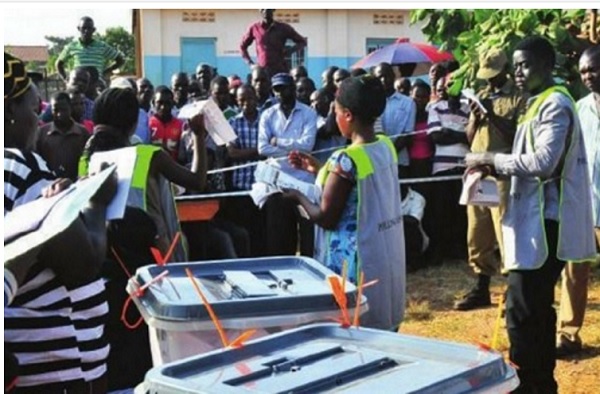
The fate of 2021 Elections
by The independentElectoral Commission should give guidance because any talk of extension of elections must consider what our laws say
COMMENT | MUKALAZI DEUS MUBIRU | The recent unprecedented Covid19 control measures, which included suspension of public meetings like political rallies, conferences and other related meetings, disrupted the core activities of the Electoral Commission (EC). Roadmap activities affected include display of tribunal recommendations for deletion or inclusion on the National Voters Register (NVR), gazetting and publishing of candidates’ nomination dates and venues, Elections of Special Interest Groups (SIGs), including older persons, Persons with Disabilities (PWDs) and youth at village and parish levels and internal political party candidates identification processes.
The EC is yet to come out with an official communication regarding the roadmap. Separate decisions regarding the suspension of the SIG elections have been haphazardly communicated through the press but a visit to the EC website shows little or no activity. No formal statement was ever issued by the EC regarding the roadmap. One would, therefore, be right to assume that the roadmap still stands.
An article published in the Daily Monitor of May 15, says the EC at the moment cannot tell whether the country will go to polls in February 2021 or not. The article quotes the EC Secretary Sam Rwakoojo saying it would be speculative to tell when this virus is going away and that the EC has not yet come up with the dates of resuming the roadmap although EC admits it is not too late and insists the elections that were affected will have to take place.
Whereas the EC has come out to offer this anecdotal guidance, it’s important to note that it’s not enough. EC should not wait for the press to go them nine weeks after the lockdown to be able to say something. An official statement ought to have been issued and periodic updates given depending on the situation. The continued silence and lack of official guidance by the EC just helps to confuse the citizens more. This confusion is not helped by calls for extension of elections to 2023 as was proposed by the two Uganda members of the East Africa Legislative Assembly (EALA), Dennis Namara and Paul Musamali. President Museveni also recently said it would be madness to think of holding elections in January.
According to the roadmap, nomination of candidates for Local Governments was slated for July 20, 2020. Nomination of Candidates for Parliamentary elections is August 12, 2020, about 88 days from now. It’s important to note that as per Section 116(5) of the Local Government Act, civil servants and public officers wishing to contest for elections as guaranteed by the constitution under Article 38(1), must have resigned their offices at least 30 days before nomination day in accordance with the procedure of the service or employment to which he or she belongs.
Article (4)(2) of the Parliamentary Elections Act has a similar condition of 90 days for those intending to contest for parliamentary conditions. Although there is still time for local government aspirants, parliamentary aspirants working with government agencies should have resigned their positions on May 13 to fit within the 90 days requirement. Such scenarios call for constant revision of the roadmap, so citizens are not caught off guard and unfairly stripped of their right to contest for leadership.
The current uncertainty of covid19 notwithstanding, and there is no guarantee anything will get certain in their near future, given that the EC activities have a far bearing implication on our constitutionalism, it’s important for the commission to constantly engage the citizens and keep them updated.
Elections are at the centre of our democracy and Article 1(4) is clear on how people shall exercise their will and consent on who shall govern them and how they shall be governed, through regular, free and fair elections. This is one of the provisions of the constitution that cannot be amended without a referendum as per Article 260(2)(b).
Any talk about extension of the elections must take into consideration what our laws say because COVID19 aside, we must follow the law and our constitutional provisions regarding how to handle such a situation. At the moment, without a state of emergency, there is no reason why the EC should not be exploring alternative ideas on how to hold the elections to avoid a constitutional crisis. It’s time for EC to step up and provide guidance as mandated by the Constitution and other relevant laws of Uganda. Silence is not helping matters at all.
****
Mukalazi Deus Mubiru is a Research Associate, Democracy and Rule of Law at the Great Lakes Institute for Strategic Studies (GLISS).
deusmukalazi@gmail.com
CLICK TO READ ONLINE MAGAZINE HERE
Share on: WhatsApp